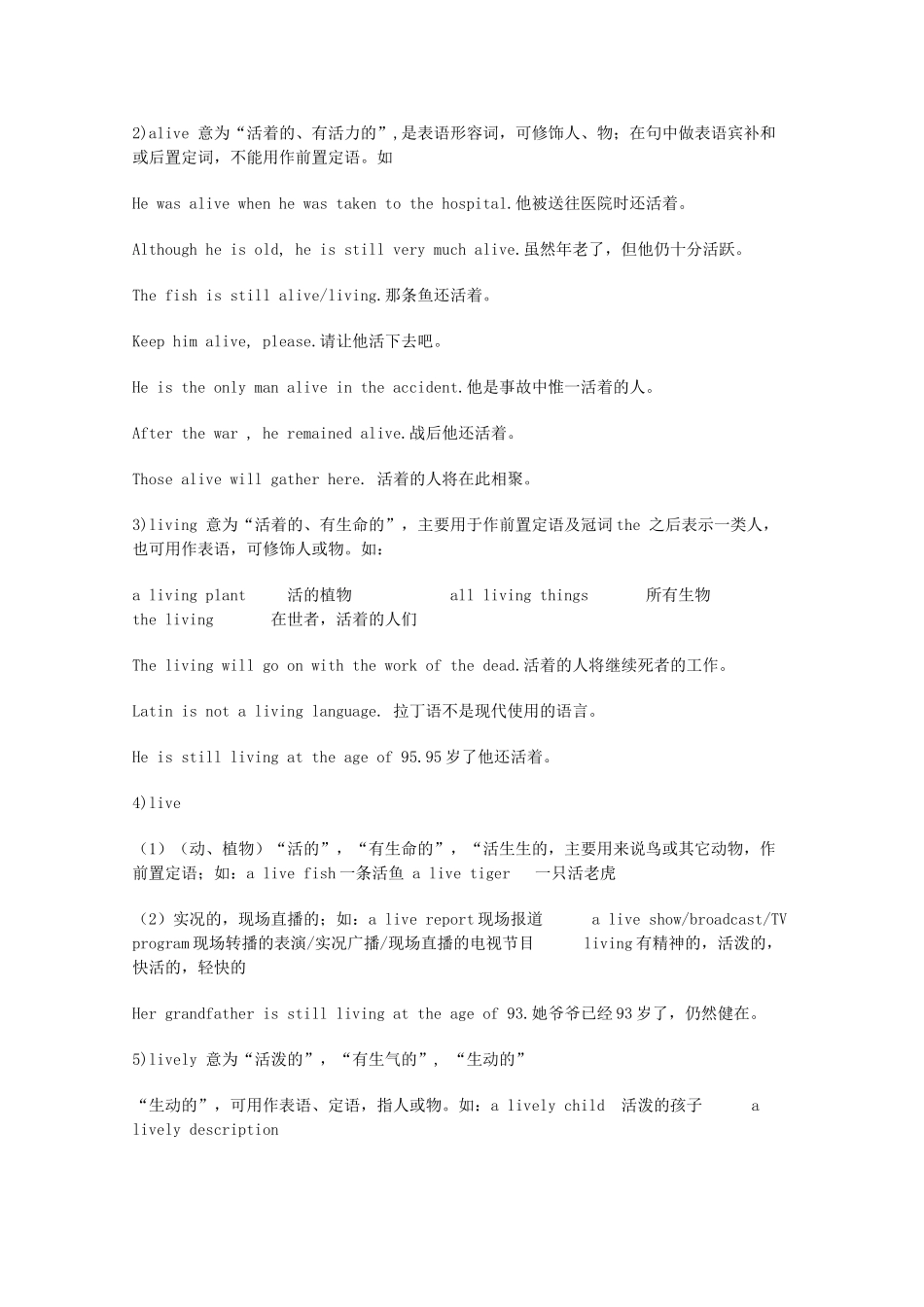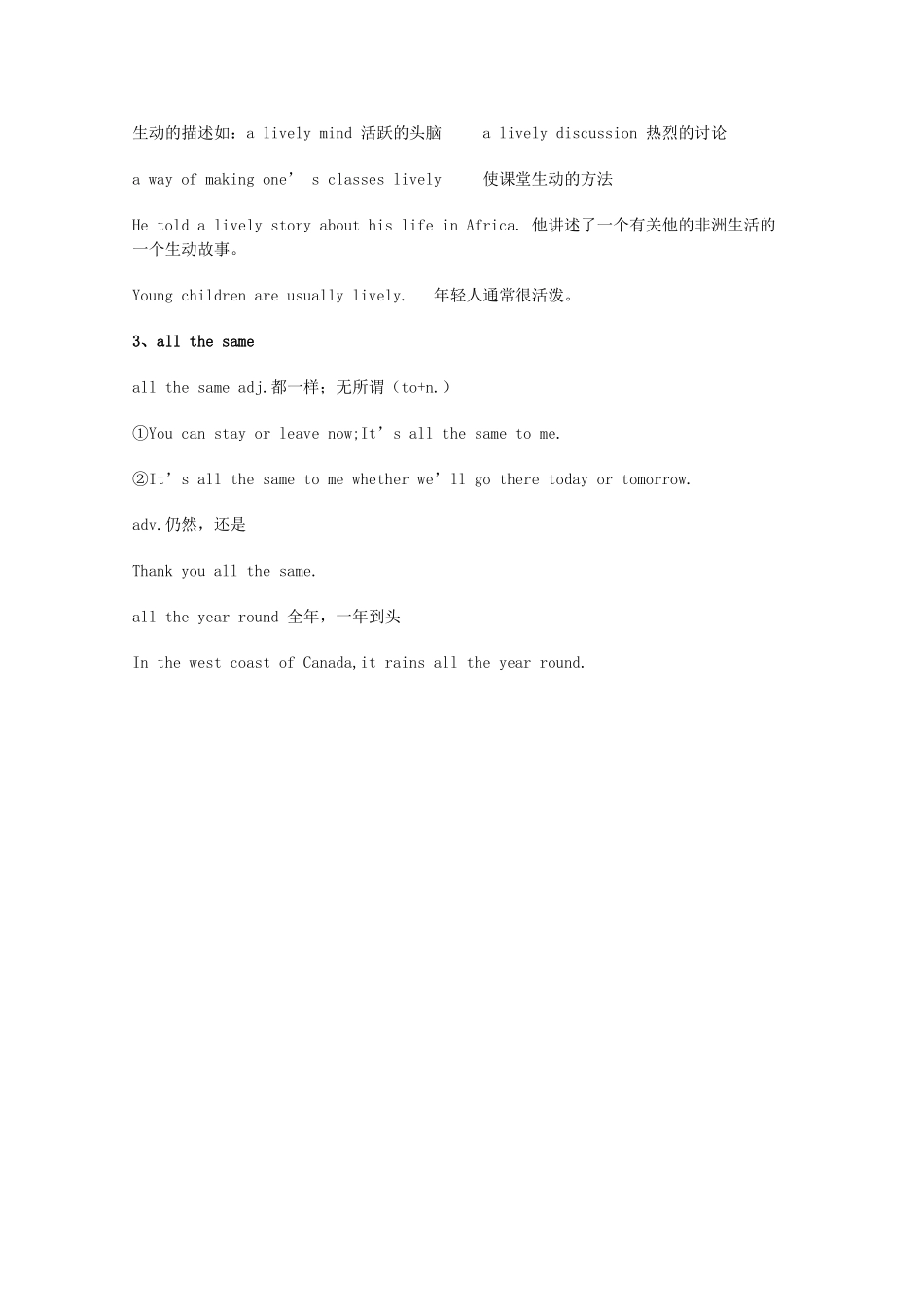alive/living/live/lively 的区别1、agreeagree 同意。常用桔构:(1)agree on 对……取得一致意见或达成协议,一般表示原双方共同商讨以后达成协议的名词)。主语必须是两者以上。也常用被动语态,表示“(某事)是大家都同意的”。 如:①They agreed on the date for the next meeting.对下次会议的日期他们达成了一致意见。②At last,the plan was agreed on. 最后,这项计划通过了。③I don’t agree with you to this arrangement, but perhaps, after a discussion we will agree on this project.我不赞同你在这件事的安排,但或许在协商之后我们可以就这个工程达成共识。(2)agree to 同意;赞成。to 为介词,后接表示“建议;办法;计划”等名词。①Do you agree to my plan?你同意我的计划吗?②The headmaster has agreed to our suggestion for the holiday.校长同意了我们度假的建议。(3)agree with 同意;赞成。后接 sb. 或 what 从句。I agree with you ,but I don’t agree with what he said.我同意你的意见,但我不同意他所说的。另外,agree with 还有“与……相适应/相一致”的意思。The climate here doesn’t agree with me .我不适应这里的气候。(4)agree to do sth.同意、答应做某事。Do you agree to go with us if we agree to lend you some money?如果我们答应借钱给你,你同意和我们一起去吗? 2、alive/living/live/lively/lovely区别:1)lovely 意“可爱的”,“美好的”如:a lovely day 美好的一天 a lovely girl 可爱的女孩2)alive 意为“活着的、有活力的”,是表语形容词,可修饰人、物;在句中做表语宾补和或后置定词,不能用作前置定语。如He was alive when he was taken to the hospital.他被送往医院时还活着。Although he is old, he is still very much alive.虽然年老了,但他仍十分活跃。The fish is still alive/living.那条鱼还活着。Keep him alive, please.请让他活下去吧。He is the only man alive in the accident.他是事故中惟一活着的人。After the war , he remained alive.战后他还活着。Those alive will gather here. 活着的人将在此相聚。3)living 意为“活着的、有生命的”,主要用于作前置定语及冠词 the 之后表示一类人...


